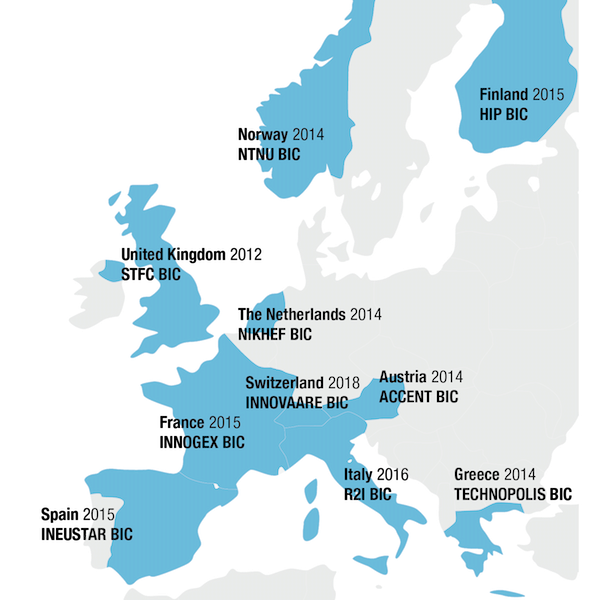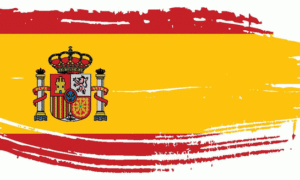(Editor’s note: This is the second installment of our lists of Europe’s best accelerators and incubators. You can see the first post here.)
Earlier this month, the New York Times had a stunning story on how crazy things have gotten in The Valley. In “$100 Million Was Once Big Money for a Start-Up. Now, It’s Common,” NYTimes reporter Erin Griffin documents how the typical investment in promising startups has risen by a factor of four to $200 million now from $50 million only a couple of years ago.
The rise of the “mega-round” is indicative of too much capital chasing too few innovations. In addition to VCs and private equity, global players such as Tokyo-based conglomerate SoftBank, Chinese companies and sovereign wealth funds are joining in the hunt for the new, new thing, Griffin reported.
So, we know where the money is coming from. But where is the talent coming from at the moment when innovators hold all the cards? This is a vexing question for us in Europe, because what happens in Palo Alto, Mountain View and Menlo Park today arrives in Europe tomorrow.
In Europe, there are so many accelerators and incubators from Portugal to Prague that we have trouble keeping up with them. Which is why we created this series of lists. That, and we’re all about the global mobility of talent, and innovation hubs such as Amsterdam, Stockholm, Eindhoven and Paris are where the big opportunities are for expats.
As we stated in the first installment, Europe still hasn’t really found its secret startup sauce compared to Y Combinator and other U.S. accelerators. But we look for that to change as more and more European entrepreneurs such as Skype founder Niklas Zennström funnel money into the effort to create more and better startups.
And they’re not alone: Global companies such as LVMH, the Paris-based luxury-goods giant that owns everything from Louis Vuitton to Sephora cosmetics, is using part of the $5.6 billion it nets each year to create its own accelerator at Station F.
So, let’s get to the places you can build your startup.
Fashion Technology Accelerator Milan
If your startup isn’t ready for LVMH, this could be a great option.
Milan is the fashion capital of the world, with more than a dozen luxury brands based here including Prada, Armani, Dolce & Gabbana, Etro, and Zegna. So it would figure those companies would want to ensure Milan stays the capital of fashion by funding and supporting the next generation of retail, luxury and fashion companies in a virtuous circle to attract more talent.
How it works:
• FTAM is a 6-month accelerator that invests up to 100,000 euros and gets 10 percent of the company’s equity. (The capital injection is 40,000 euros in cash, plus 60,000 euros in “services.”)
• To qualify, you have to have cash flow, a solid team and a proven approach to solving problems in the fashion, luxury goods and/or retail sectors.
• Your startup doesn’t have to be physically on site, but startups accepted into the accelerator can us FTAM’s facilities in Milan.
• The Milan accelerators claims 30 mentors including Francesco Bottigliero, the CTO of Brunello Cucinelli, and Gabriele Lunati, global e-commerce director for Giorgio Armani. Impressive.
FTAM is part of a group of accelerators in The Valley, London and Seoul.
You can apply here (though the current cohort is closed. They also have a fast-track program where you pay them 1,000 euros for training, mentoring and networking.)
You can see their portfolio of startups here
NDRC
Based in Dublin, 10-year-old NDRC, is an accelerator with global aspirations. It now has operations in Waterford and Galway in the Republic of Ireland and in Oman. This is kind of an all-things-to-all-people accelerator, with the latest cohort into ticketing software, cyber-bullying solutions, blockchain and fashion-tech, according to media reports.
This is a state-supported effort that started out as the National Digital Research Centre, with about 40 million in capital flow-through to date. So this is real.
Here’s what you get:
• An investment of between 30,000 euros and 100,000 euros per venture
• 12 to 24 weeks working alongside a broad spectrum of startups, innovators and investors
• Expert mentorship in areas such as financials, investor readiness, marcom and developing a business model
• Weekly workshops and networking with acknowledged thought leaders
• The opportunity to build on their connections with the investment community
Most of the accelerators that have been around awhile can claim 500 million euros in follow-on investments for their startups. NDRC can, as well. Which is nice. But NDRC, like most of the rest in Europe, has never produced a big exit. That said, Tandem HR has gotten quite a bit of pub.
F10 Incubator & Accelerator
That fintech is big in Zurich should come as no surprise since that’s the biggest banking town in Europe. What is a bit surprising is that Zurich seems to be bent on dominating fintech even though Amsterdam has produced more fintech Unicorns, including Adyen, which is now partnering with eBay.
F10 offers a 6-month “Prototype to Product” program (P2) in which startups are supported in transitioning their prototype to a sellable product.
You get:
• access to about 60 mentors and coaches.
• Access to F10’s global network of banks, regulators, angels, and VCs
You don’t get any direct capital injection from the F10 accelerator, which kind of sucks. But they don’t take equity and they have a lot of friends with Swiss vaults, so we’re thinking your chances of getting a check somewhere along the line are pretty good.
Don’t forget to monitor their website for the next application period. And you can get to know them better at the F10 Vienna fintech hackathon 16 to 18 November.
 The Nikhef-CERN Business Incubation Centers
The Nikhef-CERN Business Incubation Centers
This is for scary-smart people.
While working with HighTechXL on their CERN Hackathon, we got a chance to talk with two CERN executives. And we found out CERN has an internal incubation program of its own. It’s not just one program, it’s 10 across Europe including:
*The SFTC CERN Business Incubation Centre (BIC) in London
• The Nikhef-CERN Business Incubation Centre in Amsterdam
• NTNU Business Incubation Centre of CERN Technology, Oslo
• Austria Business Incubation Centre of CERN Technologies, Vienna
• Business Incubation Centre of CERN technology of Technopolis Thessaloniki Incubator S.A.” in Greece
Each has its own website, but you can see the landing page here that lists them all.
What you get:
• work space including office equipment, meeting room, internet connection, phone, photocopier, mail service
• coaching and mentoring, including an entrepreneur
• funding through credits from the Communauté de communes du Pays de Gex (max 30,000 euros over three years).
The best part? CERN lets you keep the money and the IP!
Our experience is that CERN makes available research in areas such as accurate temperature control using CO2 cooling and long-distance laser beams and small high-frequency Particle Accelerator and the rest is up to you – you have to use your expertise in physics or engineering to figure out how to build a business around it.
So, this is kind of specialized.
Campus Madrid
Spain is expanding its ecosystem with Campus Madrid, one of seven Google campuses around the world.
There are several programs including Campus Residency, a 4-month (or 6-month – the website lists both) program for global startups that offers “customized support and unique access to Google resources and experts.” This is free, but you don’t get funding. Moreover, where most programs say out loud who they’re looking for, Campus Madrid says things like “We’re looking for startups that will change the world and go global.” Okaaaay.
You get:
• Access to Google experts
• Global Passport that gives you access to Google’s Entrepreneurs global programs, spaces and network
• On-site sessions with mentors, industry experts and entrepreneurs
• Monthly resident-only opportunities
• Desks at Campus Madrid for 6 months
A campus startup school teaches skills such as product management and UX design. Campus Madrid also offers a Founders 101 course for aspiring entrepreneurs.
This is another program where you have to monitor the website to see opening periods.
Madrid has sun and fun, so who wouldn’t want to start up there? But there are other Google campuses in Tel Aviv, Seoul, Berlin, Warsaw, London and Sao Paulo.














